Inside PROOF
- Message From Our Executive Director
- India: Next Phase for the “Legacy of Rape”
In the News
- Syria: Reassessing the Responsibility to Protect
- Darfur: Government Sponsors Violence to Gain Control of Resources
- USIP Video on “The Missing Peace” Symposium, Peace Building Toolkit
- Latest Blog Posts
Photo: AP
Friends and Colleagues
Now that summer’s over, we are forging ahead in new directions to broaden our contribution to human rights.
We have been asked to participate in the Broadway production of, “A Time to Kill,” which opens September 28 at the Golden Theater in New York.
Based on the John Grisham novel, the play portrays the shock waves that hit a Mississippi town following the rape of a 10-year-old black girl by two white racists.
After the performance, we will be leading a series of discussions on racial justice with the cast and audience.
On another front, we are collaborating with partners both in India and in the U.S to take our “Legacy of Rape” project to cities and villages in West Bengal.
Although a departure from our usual focus on rape in conflict zones, we feel we have a unique role to play to help address this urgent women's rights issue.
As you likely know, advocates of human rights have taken widely divergent positions on what constitutes an ethical approach to the crisis in Syria. Earlier this month, we posted our statement online and provide you a more complete rationale below.
INSIDE PROOF
Message From Our Executive Director
A couple of weeks ago, I had lunch with Vijay Narula, founder and CEO of Optimal Solutions and Technologies, Inc., a consulting firm based in Washington, DC.
Vijay was very interested in the mobile exhibition we are developing with our partner in West Bengal (see next story) on rape awareness and prevention in India, his native country.
Then, Vijay began to talk about his efforts to change a culture that often accepts violence against women.
Listening to what Vijay has accomplished in India – repeatedly shuttling back and forth from DC during the past several years – I was impressed.
With his help, the government of New Delhi has set up a 911 hotline for women who have experienced violence. And he has provided funding for hotline operators to receive professional training, so they know how to answer questions and help women in need.
In a country where few if any national hotlines exist, this is a major accomplishment that will go far in supporting women whose cries for help are often ignored.
I consider Vijay to be a modern day rescuer. We, at PROOF, applaud his work in India and look forward to collaborating with him on this critical issue.
– Leora Kahn
India: Next Phase for the “Legacy of Rape”
PROOF and partners are creating a country-specific version of the “Legacy of Rape” as a multifaceted educational campaign for India.
Starting in West Bengal, “Legacy” will reach out to local populations–both villagers and city dwellers–to raise awareness and promote cultural and legal change.
“Legacy” will accomplish those complex goals by showing audiences images of survivors, together with their stories, and then engage viewers in a public dialogue.
As part of the campaign, we will also help set up public interactive sessions with researchers, social scientists, judges, and the media. And we will work with our Indian partner, Drik India, to make a short film out of dialogues.
Drik has already begun some activities in Delhi, including a talk by a photographer and an event at the Delhi Press club focusing on the Delhi gang rape that led to the death of a young medical student in December 2012.
The campaign will run simultaneously at urban and rural locations: in Delhi and Kolkata and in affected districts of West Bengal, Manipur, and Kashmir.
You can help by donating to our September Appeal, or becoming a fundraiser in our PEER2PEER4INDIA Campaign.
This month, PROOF announced its September Appeal. The funds raised will go directly towards "The Legacy of Rape" project in India. Click on the button below to donate today, and thank you from all of us here at PROOF.
PEER2PEER4INDIA
If you would like to do something more to support PROOF's "Legacy" project in India, why not become a fundraiser for PROOF? With our PEER2PEER4INDIA campaign, you can set up your own fundraising page, and help get our program get up and running. Click HERE for more information and set up your own fundraising page today!
Be part of change.
Be part of PROOF.
Host an Event
If you would like to host any type of event with PROOF, please email us at info@proof.org or call us at 212-213-2788.
Partner With PROOF
Over the past year, we have added three new partner organizations. We’re always interested in forming new partnerships. Email or call us to discuss possible avenues of collaboration with your organization.
Donate to PROOF
Every dollar you donate helps bring our projects to life. We use your donations to hire translators, photographers, researchers, drivers, and many other types of help and expertise.
We also need funds to create our exhibitions and enable them to travel, particularly to areas where conflict persists.
IN THE NEWS
Photo: AP
Syria: Reassessing the Responsibility to Protect
After the horrors of the Holocaust, people the world over vowed that genocide would never happen again. But instead, genocide and other crimes against humanity have proliferated.
In the face of this shocking failure, the UN General assembly adopted the Responsibility to Protect (R2P) in 2006. A new norm consistent with international law, R2P puts the onus on the international community to act when governments fail to protect their citizens from atrocities.
The situation in Syria tests our resilience and patience to enforce R2P.
On September 16, UN investigators reported finding clear evidence that Sarin gas killed hundreds of people just outside Damascus on August 21. Blood samples and pieces of surface-to-air rockets tested positive for Sarin. UN Secretary-General Ban Ki-Moon called it a war crime.
We believe in following R2P principles to deal with such crimes and resist the urge to use unilateral or even multilateral force. While we fully support the recent diplomatic breakthrough, our statement on Syria calls for the international community to act through the UN to protect civilians, should force be required.
Working within an international framework is often messy and time-consuming, leading people to question its efficacy.
So it’s reasonable to ask: can R2P prevail and save lives, or will it become another quixotic quest to unite humanity in just cause?
We believe R2P can succeed. Norms may evolve slowly, but they do change. Less than 150 years ago, the merits of slavery were still debated in the civilized world. In the context of 10,000 years of human civilization, the seven-year interval since adoption of R2P represents but a blink of time.
R2P can become a universal paradigm, but it needs our unflagging support. History will judge us for our commitment to making sure R2P will endure to create a safer world for future generations.
(Photo: Associated Press)
Darfur:
Government Sponsors Violence to Gain Control of Resources
Sudan’s government blames the latest spate of the violence on tribal animosity, but a new report by the Enough Project, “The Economics of Ethnic Cleansing in Darfur,” tells a different story.
According to Enough, the Sudanese government is fanning conflict in a bid to control land and natural resources.
The government is empowering the Janjaweed militias, who are burning down villages and grabbing land in resource-rich areas.
This form of ethnic-cleansing has displaced more than 300,000 villagers this year alone. In the face of this reign of terror, UN peacekeepers have been unable to protect civilians. Peace efforts, ongoing since the mid-2000s, have only intensified the conflict.
You can find out more in the report linked above.
You can also act by asking your representative in Congress to support H.R. 1692, the Sudan Peace, Security, and Accountability Act of 2013, which calls on the U.S. government to adopt a comprehensive approach to solving the crisis in Sudan and support civil society’s work toward democratic reform.
USIP Video:
“The Missing Peace” Symposium, Peace Building Toolkit
Last February, our “Legacy of Rape” exhibit received accolades at the U.S. Institute of Peace, where it was on display for “The Missing Peace: Sexual Violence in Conflict and Post-Conflict Settings” symposium.
Now you can see a short video with clips of scholars, policymakers, practitioners, and others who contributed to the symposium at http://www.usip.org/publications/the-missing-peace-symposium-2013-video . If you pay close attention, you can see our “Legacy” exhibit in the background of some of the shots.
In other news, USIP announced its Peace Building Toolkit for Educators by clicking here. It has two modules, one for middle school and one for high school.
Perspectives From Our Blog
Check out our blog posts published since our last newsletter:
- Matthieu Zellweger:
Speaking Words of Wisdom
- Samantha Lakin:
Reflection on Murambi and National Memorial Sites in Rwanda






